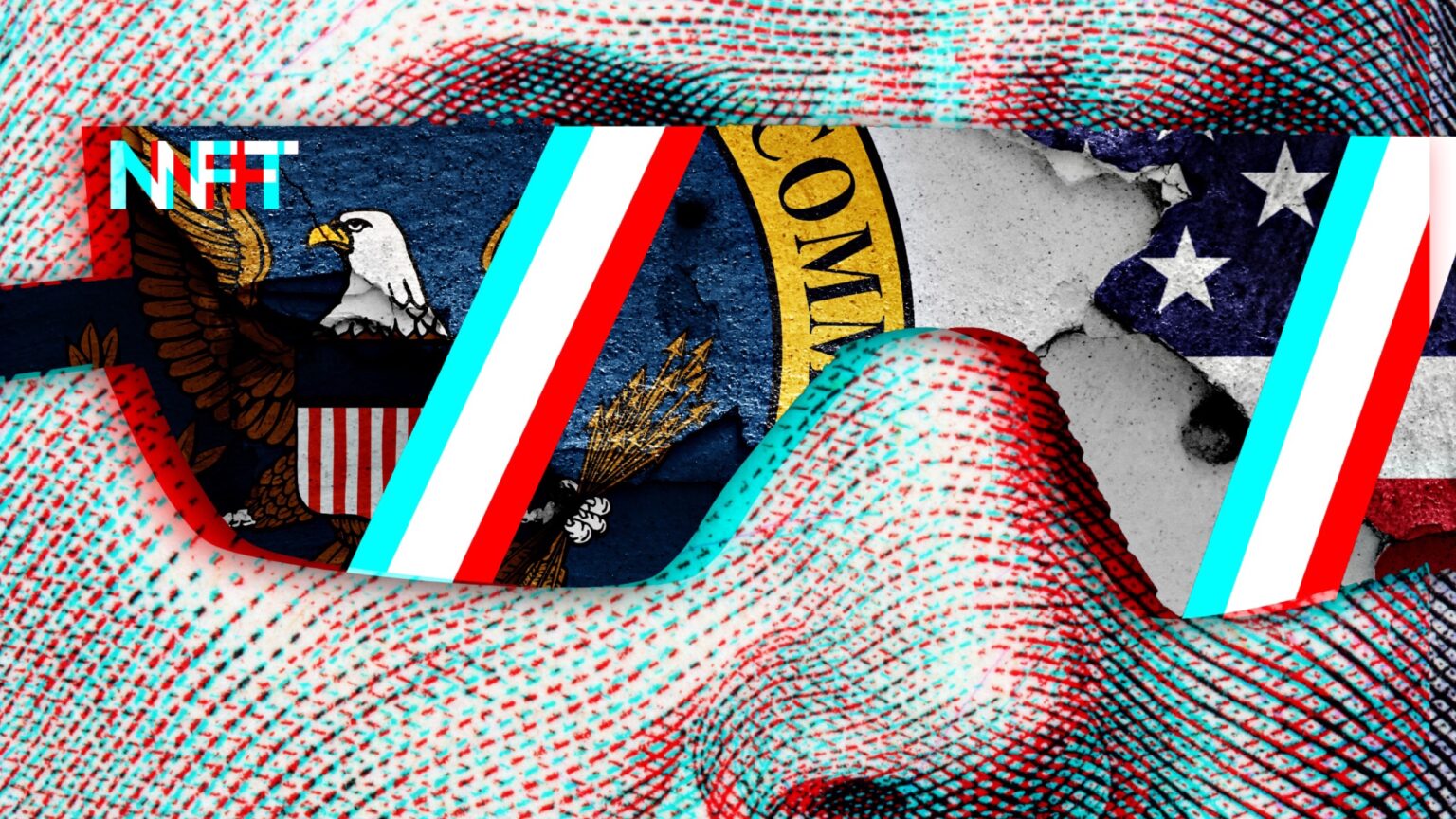The U.S. Securities and Exchange Commission (SEC) on Monday charged Los Angeles-based entertainment company Impact Theory with conducting an “unregistered offering of crypto asset securities” through non-fungible tokens, or NFTs.
The enforcement action, considered the first by the capital markets watchdog targeting NFTs, is significant in the sense that it determines NFTs now fall under the jurisdiction of the SEC, something that could shake up the entire industry.
“Absent a valid exemption, offerings of securities, in whatever form, must be registered,” Antonia Apps, director of the SEC’s New York Regional Office, said in a statement.
Also read: Everything But Bitcoin Is a Security Says SEC
Impact Theory agrees to cease-and-desist order
A non-fungible token is an immutable and unique unit of data stored on the blockchain. NFTs can be used to represent items such as photos, videos, audio, and other types of digital files.
According to the SEC, Impact Theory sold three tiers of NFTs, dubbed Founder’s Keys, between October and December 2021. The items were sold via the OpenSea marketplace. The company encouraged investors to view the purchase as an investment in the business.
The agency says Impact Theory told investors they “would profit from their purchases” if the business succeeded. The company also said it was “trying to build the next Disney” and that the NFTs would deliver “tremendous value.”
Impact Theory sold nearly 14,000 NFTs to hundreds of investors, raising $30 million worth of Ethereum. As a result, the SEC established that the NFTs sold to investors as Founder’s Keys were investment contracts and, therefore, securities.
While Impact Theory did not admit or deny the SEC’s allegations, the company agreed to a cease-and-desist order and a fine of $6.1 million in disgorgement, prejudgment interest, and a civil penalty. It will also refund all affected investors and destroy all Founder’s Keys NFTs.
Today we charged Impact Theory LLC, a media and entertainment company headquartered in Los Angeles, with conducting an unregistered offering of crypto asset securities in the form of purported NFTs. Impact Theory raised approximately $30 million from hundreds of investors.
— U.S. Securities and Exchange Commission (@SECGov) August 28, 2023
In 2020, NFTs emerged as a cultural storefront of the crypto industry, bringing up novel possibilities in the curation and circulation of art. NFTs swayed fascinated endorsements from pop celebrities such as Snoop Dogg, Lindsay Lohan, Grimes, and several others.
Digital artist Beeple sold an NFT for more than $69.3 million two years ago. Twitter founder Jack Dorsey converted his first ever tweet into a non-fungible token and sold it for $2.9 million. Dorsey’s NFT has since plunged to only a few dollars worth, however.

Divisions in SEC
The SEC’s decision to classify the Impact Theory NFTs as securities was not unanimous. Two commissioners, Hester Peirce and Mark Uyeda, dissented.
In a separate statement, the duo said they disagreed with the application of the Howey Test, a U.S. Supreme Court precedent that creates a framework for classifying securities, and that the NFTs did not represent shares in a company or generate any type of dividend.
“The Commission should have grappled with these questions long ago and offered guidance when NFTs first started proliferating,” the Commissioners wrote.
“The handful of company and purchaser statements cited by the order are not the kinds of promises that form an investment contract. We do not routinely bring enforcement actions against people that sell watches, paintings, or collectibles.”
There have always been questions about how regulators in the U.S. would characterize NFTs as well as the jurisdiction under which they fall.
Prior to the SEC action, a lawsuit against Dapper Labs by a group of NFT collectors remained the highest-profile case to tackle the issue, Fortune reported. The applicants alleged that the crypto firm earned millions of dollars by selling unregistered securities.
Dapper Labs wants the case dismissed for lack of merit, but a judge ruled in February that it could move forward, saying it was plausible that NFTs could qualify as securities.
According to Bloomberg, a Dapper spokesperson argued that “courts have repeatedly found that consumer goods, including art and collectibles like basketball cards, are not securities under federal law.”
After threatening Bored Apes creator Yuga Labs with a lawsuit for selling unregistered securities in October last year, it remains to be seen whether the SEC will use the Impact Theory precedent to bring court charges against NFT creators in the United States.









 and then
and then